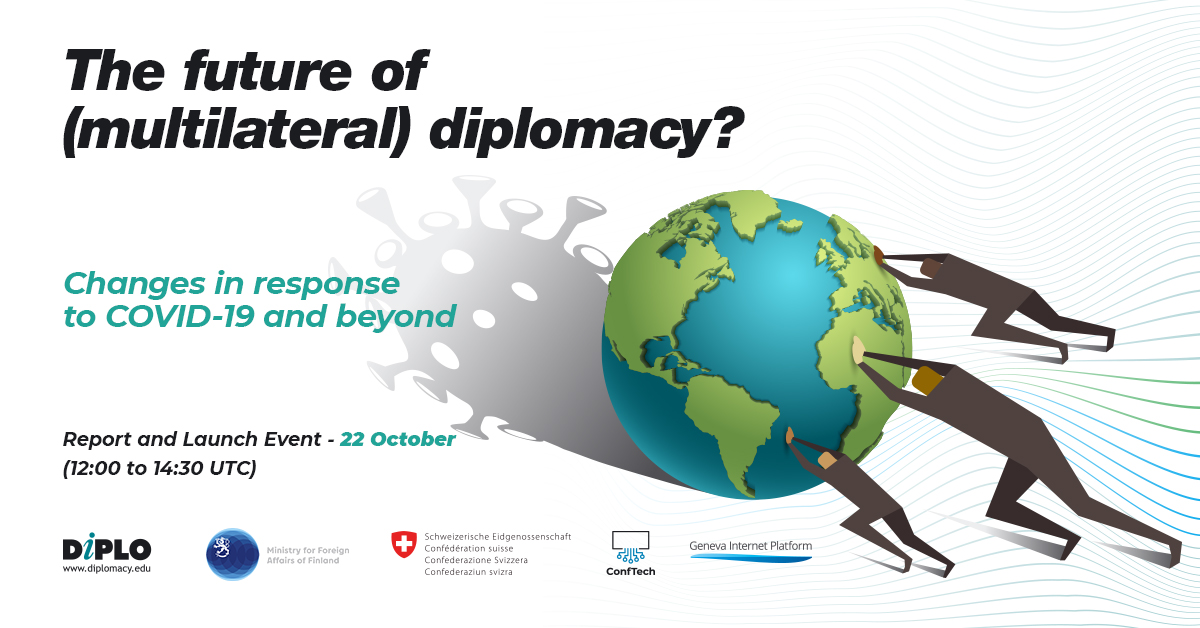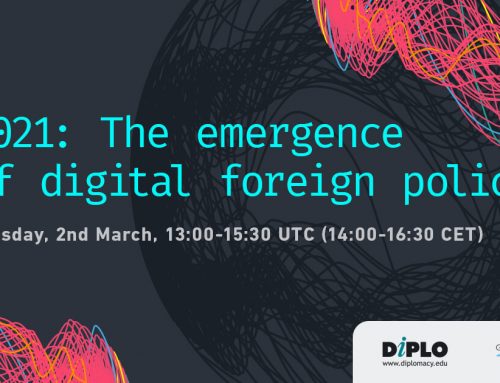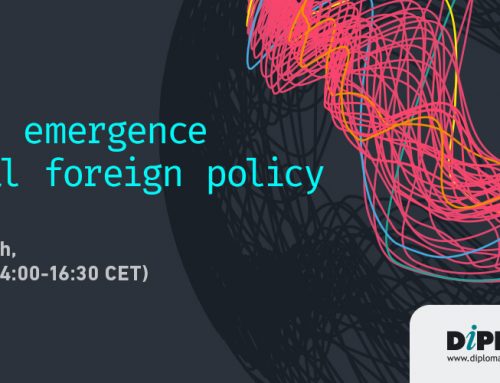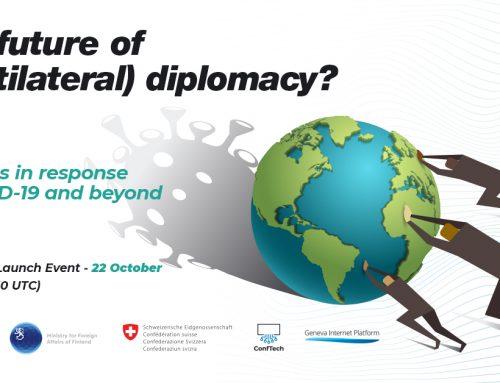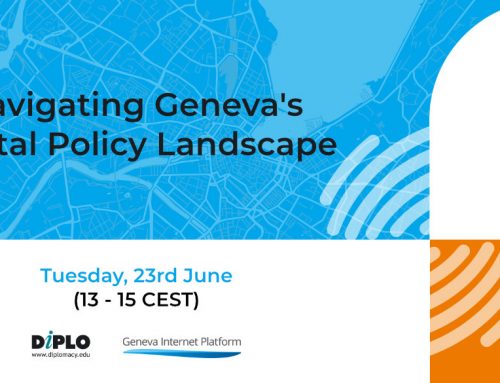Table of contents
Published by DiploFoundation (2020).
Table of contents
Published by DiploFoundation (2020).
This year marks the 75th anniversary of the United Nations, but it is also the year when the world is responding to the emergence of the novel Coronavirus, an unprecedented global challenge that leaves no area of society and no individual untouched.
The various entities within the UN system are faced with the herculean task of responding to COVID-19. What lessons can we draw from this and what does it mean for the future of the organisation? More broadly, what is the future of multilateralism in a world which exhibits some strong unilateral tendencies? COVID-19 has also impacted the work of diplomats. Most importantly, the need for social distancing has led to changes in how diplomacy is practised. How has diplomacy, a profession that strongly builds on interpersonal and face-to-face contacts, dealt with this fundamental shift?
In order to begin addressing some of these questions, our conference discussed the major findings of the research study The future of (multilateral) diplomacy, conducted with the support of the Finnish Ministry for Foreign Affairs. We also shared experiences from Diplo’s ConfTech Help Desk, which is supported by the Finnish Ministry for Foreign Affairs, the Swiss government, and is made possible through the operational support of the Ford Foundation. The ConfTech Help Desk provides immediate advice and support to countries and organisations in finding solutions and making the right decisions on how to organise their online meetings and events.
Following a high-level plenary session, the conference brought together 25 expert speakers for discussions on the following five tracks: The future of the UN and multilateralism; Practice, protocol, and procedures; Focus on small and developing countries; Digital diplomacy and diplomacy by video conference; and Diplomatic training for new skills and tools. Although we cannot do justice to the richness of the discussion, below we provide a brief summary of the high-level plenary session and the five tracks. Video recordings of all sessions are available for those who want to follow up in greater depth.
Plenary: High-level discussion
The high-level discussion set the scene for the conference and was a great opportunity to highlight key considerations for the discussion, and points for future engagement.
Ambassador Kirsti Kauppi (Permanent Mission of Finland to the United Nations in Geneva) suggested that the pandemic highlights the importance of cooperation and multilateral diplomacy. Yet, how to practice this effectively under the circumstances, using available digital tools, remains an open question. In particular, the continuation of negotiations using virtual means remains a current and future challenge. The pandemic is also an opportunity to learn and strengthen multilateral diplomacy. However, for multilateral diplomacy and multilateralism to work, everybody has to have the capability and capacity to participate meaningfully.
In his opening remarks, Ambassador Jürg Lauber (Permanent Mission of Switzerland to the United Nations in Geneva) stressed that the pandemic forced diplomats to adapt their working methods. Echoing the words of Ambassador Kauppi, he suggested that the pandemic also highlighted the importance of working together in a multilateral setting in order to face current challenges. He also stressed that this year is a good opportunity to reflect on the history of multilateralism and how it has adapted to changing circumstances since 1945. For the future, he expects a greater adoption of virtual and hybrid meetings, and greater inclusion of civil society and key experts.
Joining the conference via a recorded video message, Mr Fabrizio Hochschild (Special Adviser to the UN Secretary General on the Preparations for the Commemoration of the United Nations’ 75th Anniversary) also suggested that the pandemic accelerated the adoption of digital technologies. This also means that capacity-building efforts for those facing greater challenges of adaptation are needed more than ever. Hochschild raised concerns about leaving behind societies and countries that cannot catch up as quickly regarding connectivity and digital cooperation. He argued that the pandemic has given greater urgency to the aims of the UN Secretary-General’s Roadmap on Digital Cooperation to connect, respect, and protect all people online. Greater efforts are needed in order to achieve the goal of universal, meaningful, and affordable connectivity by 2030, and to ensure the protection of human rights online. Having said this, he suggested that the governance of digital technology requires global multistakeholder cooperation that avoids the laissez-faire approach from the past.
Joining from Addis Ababa, Ethiopia, Mr Moctar Yedaly (Head, Information Society Division, African Union Commission) used his own experience and circumstance to highlight the challenges participants from developing countries face when joining virtual meetings, and the numerous precautions that need to be taken in order to ensure connectivity. Yedaly argued that multilateral diplomacy today is strongly impacted by the infusion and diffusion of digital tools into the practice of diplomacy. In this context, ensuring greater inclusivity is crucial. This means that the tools and practices related to them need to be well thought-out, with an emphasis on inclusivity. Yedaly also highlighted that a meeting of the Executive Council of the African Union (AU) was held virtually this year, and that there are considerations to also hold the African Union Summit, taking place early next year, virtually. He also emphasised that connectivity and meaningful access will be crucial issues for going forward.
In his intervention, Dr Jovan Kurbalija (Executive Director, DiploFoundation; Head, Geneva Internet Platform) argued that there is a need to create a ‘digital home’ at the UN, where all policy, governance, legal, security, and human rights issues can find a common home in order to achieve greater coordination and an accessible entry point into these discussions, especially for small and developing countries. This suggestion builds on the work of the UN High-Level Panel on Digital Cooperation and the UN Secretary-General’s Roadmap on Digital Cooperation, but it will be important to take the next steps in this regard.
Introducing the main findings of the Future of (multilateral) diplomacy report, Dr Katharina Höne (Director of Research, DiploFoundation) explained that the report investigated, first, the responses from the UN system and diplomats, and second, the shifts in diplomatic practices. She suggested that there are three main challenges that diplomats faced over the last couple of months as they moved from face-to-face to online meetings: not being able to engage with other diplomats informally; advancing ongoing negotiations; and maintaining contact with colleagues from other missions. Going forward, she highlighted three points as particularly worthy of attention. First, hybrid diplomatic meetings will likely become a permanent feature of diplomatic practice. Second, serious consideration should be given to building a ‘digital home’ for the UN, understood as a dedicated, purpose-built, open-source platform for online meetings and negotiations. And third, training and capacity building need to adjust to the new reality and include knowledge on cybersecurity, data security, and online etiquette, as well as practical skills and soft skills related to video-conferencing platforms and digital collaboration tools.
Moving from the report to practical applications of some of the findings, Dr Stephanie Borg Psaila (Director, Digital Policy, DiploFoundation) introduced the ConfTech Help Desk that DiploFoundation launched earlier this year with the aim of supporting countries and organisations (especially in small and developing countries) in tackling questions related to virtual meetings and videoconferencing. These questions include: How do we choose an appropriate platform? Do we need technical assistance? How do we effectively moderate the meeting? How can the meeting be made more secure?
Track one: The future of the UN and multilateralism
This track was moderated by Dr Jovan Kurbalija (Executive Director, DiploFoundation; Head, Geneva Internet Platform). The discussion benefitted from the insights of Ambassador Emil Brix (Director, Vienna School of International Studies), Mr Marc Engelhardt (Journalist reporting on the UN, based in Geneva, Switzerland), Ms Monica Ferro (Director, UN Population Fund), Ambassador Vanessa Frazier (Permanent Mission of Malta to the United Nations in New York), and Mr Richard Hill (President, Association for Proper Internet Governance). They engaged in a lively, dynamic and, at times, controversial debate, touching upon historical, policy, organisational, journalistic, and legal perspectives.
How fundamental are the current changes? The jury is still out, but it is likely that the current crisis will not have such an immense impact on the history of diplomacy. The current changes are not fundamental enough to produce a major shift like after the Congress of Westphalia, the end of the Second World War, or the establishment of the United Nations. All of the significant reboots of the diplomatic system occurred after major conflicts. In this sense, COVID-19 19 is not seen as a game changer that would cause major disruptions of the current international order.
What can we do to make the UN and multilateralism fit for the future? We need to try to adjust gradually.
Is the UN able to adjust as needed? The UN system is ready for change, but it is not clear if member states are ready to push for a change. Broader challenges will most likely get overshadowed by immediate national interests.
Is there a sense of urgency in the UN-machinery? Yes! But, the system can move forward as fast as member states agree. For example, in some circles, WHO Director-General, Dr Tedros Adhanom Ghebreyesus, has been criticised for declaring the pandemic too late, but it was not him who should have declared it, but the Committee of Experts which is named by member states.
Is a push against globalism and multilateralism a passing or a structural problem? It is rather structural. In times of crisis, such as pandemics, people stick to what they can trust most – their nation-states. This is the reason why patriotic and nationalistic politics are flourishing. Because of the crisis, it is likely to continue in one form or the other. People will gather more and more around their national authorities. Also, democracy functions better at the national level. Thus, this crisis may bring some interesting ‘collateral advantages’.
Will it undermine multilateralism? Yes, it is likely to happen in the first phase, but the need for cooperation is more than evident. We may rebuild multilateralism from ‘below’ based on immediate and practical needs. Many of the existing structures will be useful in this context, but the policy of ‘building back better’ won’t work. The ‘back’ was not always ‘better’.
Where can we find the ‘pillars’ for rebuilding multilateralism? In addition to a real and tangible need to cooperate across national borders to fight the virus or have a functional Internet connection, emerging arrangements must be stable and fair.
Is the UN being judged unfairly? The UN, just like the EU at the European level, is an easy target for national politicians. Still, the UN must do much better in explaining what it does. It should also communicate with more bluntness. Can we expect from the WHO to solve global health problems when the organisation has a smaller annual budget than the university hospital in Geneva? More graphics, more clarity and more stories can help the UN to communicate better with the public.
What about financing? Financing is a significant problem. The pandemic triggers a redistribution of economic, and ultimately, political power. Funds for global cooperation may dwindle in light of more and more countries looking inward and rising nationalism. The UN’s financial crisis may also deepen. Civil society, as a crucial contributor to balanced global policy-making, is likely to be the first victim of budgetary cuts.
Are there any hopeful signs? Immediate problems of funding and the functioning of the UN may be solved with the easing of the COVID-19 pandemic. Fundamental issues will remain unresolved until the next crisis challenges the core pillars of our society. The key challenge will be to find the wisdom and energy for a major reform without waiting for the next disruption that could be more risky and impactful than the pandemic. Geneva can play an important role in alternative thinking about the future of multilateralism.
Track two: Practice, protocol, and procedures
Track two on practice, protocol, and procedures, brought together Professor Rebecca Adler-Nissen (Professor, Department of Political Science, University of Copenhagen, Denmark), Ms Dalya Salinas-Perez (Head, Consular Section, Embassy of Mexico to the Kingdom of Norway), Ambassador Amr Aljowaily (Embassy of Egypt in Serbia), and Professor Corneliu Bjola (Associate Professor, Diplomatic Studies, University of Oxford, UK). The discussion was moderated by Dr Katharina Höne (Director of Research, DiploFoundation). The track zoomed in on shifts in diplomatic practice, but also paid attention to the impact of these shifts on procedures and protocol.
How are diplomats coping with social distancing and lockdowns? Diplomacy is often associated with face-to-face meetings: the handshake or the informal negotiation in the corridor. In that sense, social distancing and lockdowns had a huge impact. At the same time, it is useful to remember one of the core definitions of diplomatic practice that describes diplomats as ‘mediators of estrangement’. In this sense, distance is a precondition of diplomacy, and diplomats are trained to bridge this distance.
How have practices shifted? Overall, diplomats have adjusted quickly. One coping mechanism is to maintain the official atmosphere in online meetings and to follow the rituals of diplomatic encounters, either online or in a socially-distanced manner.
Are online diplomatic meetings more formal or more informal? And what about diplomatic protocol? There is evidence of both. More than face-to-face encounters, virtual meetings demand striking a fine balance between formality and informality. In some cases, especially high-level meetings, diplomatic protocol does not translate easily to online meetings.
Are online meetings more inclusive now? Not necessarily, although there is great potential. So far, we have seen that there were challenges regarding journalistic and democratic oversight. Small and developing countries are also put in challenging situations trying to connect or to keep up with simultaneous meetings. It will require dedicated effort to make online meetings truly inclusive.
How have negotiations been affected? New digital tools and videoconferencing have shifted the time and space dimensions of negotiations. It is clear now that negotiations do not necessarily have to be simultaneous, and not all participants have to be in the same space. In addition, it is useful to think of negotiations in terms of phases, a different set of tools is most appropriate for each phase, and not all phases require face-to-face contact.
Are these shifts permanent? Diplomats will make greater use of online meetings and videoconferencing, There is a chance these meetings become more inclusive. But there is also a desire to go back to face-to-face meetings, and a sense that there are limits to what can be achieved in virtual meetings, especially when it comes to conflict situations and complex negotiations. Having said this, the shifts we are seeing now are part of a much larger development: the digital transformation of ministries of foreign affairs. In that sense, perhaps there is more continuity than change in the shifts that we are seeing at the moment.
Track three: Focus on small and developing countries
Challenges of small and developing countries were the focus of track three. Moderated by Dr Stephanie Borg Psaila (Director Digital Policy, DiploFoundation), the track welcomed the participation of Ms Maricela Muñoz (Minister Counsellor, Permanent Mission of Costa Rica to the UN in Geneva), Ms Asha DeSuza (Second Secretary, Permanent Mission of St Kitts and Nevis to the UN in New York), and Mr Moctar Yedaly (Head, Information Society Division, African Union Commission).
How has diplomatic practice coped so far? The Internet has opened up many possibilities for diplomats to be able to participate in meetings and dialogues without having to be present physically, thus saving time and costs normally associated with travelling.
Are there any specific challenges faced by small and developing countries? These countries face additional challenges, including slow, sparse, or intermittent Internet access, poor telecommunications infrastructure, fragile energy supplies, and limited human and financial resources. In addition, the fact that online participation alleviates costs associated with travelling has already led to budget cuts in developing countries, but not necessarily in developed countries. This has often resulted in a one-person delegation from a developing country meeting with a 20-strong delegation from other regions.
What are some other challenges affecting the work of diplomats’? A very practical challenge is related to time zones. Meetings organised during daytime in certain time zones translate into early-morning or even night-time meetings for participants in other parts of the world. This slows down the response from capitals, or the availability of experts, to follow or assist in the discussions. The reduced possibility of informal and corridor meetings has impacted day-to-day work, as sensitive negotiations and lobbying often need to rely on the informality of face-to-face dialogues.
What can be done practically to address some of the challenges? In light of the current uncertainties caused by the pandemic, we need to make the best of what technology offers. Diplo, for example, launched its Help Desk for Inclusive Online Meetings earlier this year. As an in vivo example of how to implement the recommendations of the UN High-Level Panel on Digital Cooperation, it focuses on providing support to stakeholders in small and developing countries, in order to strengthen inclusive participation in global governance.
What will the future look like? In regions where there is hunger for connectivity, such as Africa, the foreign private sector will identify opportunities for investments. There is also hope that governments will take the opportunity to push for expansion and coverage of Internet access, and more reliable infrastructure and energy provisions. In addition, there is also a need for more tools that meet the specific needs of diplomats. One of them is an open-source and secure online meeting platform that can be customised for the nuances of diplomatic practice. Finally, multilateral diplomacy will most likely be conducted in a hybrid format of face-to-face interactions and online meetings.
Track four: Digital diplomacy and diplomacy by video conference
Track four brought together Mr Shaun Riordan (Director, Diplomacy and Cyberspace, European Institute for International Studies), Mr Arvin Kamberi (Online Meetings, DiploFoundation), Dr Kristin Eggeling (Postdoctoral Researcher, Department of Political Science, University of Copenhagen, Denmark)), and Professor Jeffrey Robertson (Associate Professor, Yonsei University, Korea) for a discussion on digital diplomacy and diplomacy by video conference. The discussion was moderated by Mr Vladimir Radunović (Director, Cybersecurity and E-diplomacy Programmes, DiploFoundation).
What is the experience of diplomats in using digital technology? Diplomats have already started using digital technologies, though capacities on how to use them meaningfully are often lacking. Digital tools may enhance diplomatic practice in many ways, and will continue to do so.
What elements of diplomatic practice do not translate easily online? There are elements of diplomacy that are hard, if not impossible, to implement online. Confidentiality remains a critical aspect of diplomatic work in many instances. Due to the nature of cyberspace and how digital data (be it documents, messages, or audio and video signals) flows (from a source, via multiple servers and routers in various jurisdictions around the globe , to a destination), the risk to confidentiality remains even when using strong encryption mechanisms.
What about the ‘corridor’? Another element are the corridor talks during negotiations, or informal consultations among diplomats, which are essential for creating bonds and trust. In spite of the ability to create breakout rooms in online meetings, this can’t replace live contact.
Have some of the promises of digital technology in diplomacy, such as greater transparency, come true? It is important to critically approach ‘promises’. For instance, online meetings may enhance inclusiveness only if they are organised to embrace online participation rather than online observation. In other words, it is crucial to have creative approaches for increasing participant engagement.
To what extent is transparency important for diplomacy and what are the challenges? Transparency may not be easy to acquire, and may not even be welcome on a larger scale. The abundance of information (documents, messages, meetings) create a ‘paradox of plenty’ in which it becomes increasingly hard for diplomats to make their key messages heard or to receive the messages that are important for their work. In addition, the vast use of social media by diplomats may only cause a false sense of transparency.
How can we work towards an equal playing field in online participation? While online meetings make it easier and more affordable for all states and stakeholders to participate, they are still not able to participate on an ‘equal footing’. Some will have limited bandwidths and unstable connections or power supplies (thus being occasionally cut off), while others will have more advanced settings and visual performance (HD cameras, green screens, professional lighting, etc.). Additionally, the online environment, including home offices, bring about many distractions.
What are some of the longer-term changes? For example, what about embassies? As social distancing measures, and the general trend of turning online, will continue, one systemic measure that governments will have to take up is to pass the key role for diplomacy from heads of governments and ministers (who are used to shuttle diplomacy) back to the embassies who may still be able to conduct informal physical meetings and strengthen bonds.
Are there any advanced and emerging technologies that can help? Another technological measure will be moving to games and virtual environments which may increasingly mimic elements of physical meetings, including ‘distance’ between speakers, the movements and presence of people, and corridor talks. The evolution of virtual reality and augmented reality may enhance this even further. It may be useful, however, to further discuss in-depth what are the specific elements of face-to-face meetings that are so essential and can’t be replaced (such as spontaneity, smells, and the unpredictability of situations).
What can the next generation of diplomats bring to the table? The new generations of diplomats, most of whom are digital natives that grew up with the online environment (or, rather, hybrid) may find new ways to make up for the ‘missing aspects’ of traditional diplomacy through other means and tools. It will be important to give them the space to innovate and find practice-based and intuitive solutions.
Track five: Diplomatic training for new skills and tools
As diplomatic practice shifts and adapts to the new circumstances, diplomatic training will need to respond to the new needs for information, knowledge, and skills. Diplomatic training needs to reflect the shifting reality in order to offer much needed on-the-job and up-to-date training for the next generation of diplomats.
Building on the insights of Dr John Hemery (Chairman, CPDS Group, Centre for Political and Diplomatic Studies), Professor Yolanda Kemp Spies (Associate Professor, International Studies, Zayed University, Abu Dhabi), Ambassador Stefano Baldi (Embassy of Italy in Bulgaria), and Dr André Saramago (Assistant Professor, International Relations, University of Coimbra, Portugal), the discussion in this track, which was moderated by Dr Tereza Horejsova (Project Development Director, DiploFoundation), zoomed in on current and future diplomatic training needs.
Do we need to update diplomatic training? Conducting diplomacy in the online environment certainly presents some new challenges. In particular, the ‘feeling’ for a situation or a person, which exists in physical meetings, is missing. Therefore, new skills, including soft skills, are needed to better navigate the online environment. While some of these skills might come naturally to some diplomats, it is important to build on the existing skills of the younger generations of diplomats.
What are the particular training needs? Without a doubt, diplomats now need to understand the cyber environment, and they need to strengthen their digital skills.Specific training needs to include social media training, data literacy, and statistical skills. Social media is now part and parcel of diplomatic communication. A lack of understanding of data and statistics can lead to detrimental outcomes at the negotiation table. Moreover, diplomats need to be able to think strategically and to be open to continuous learning.
Can diplomatic training help diplomats to be better prepared for the next crisis? And if so, how? While we do not really know what the next crisis will be, we can identify lessons learned. A more holistic and comprehensive development of skills will be essential. A good metaphor for this is how a physical therapist treats a shoulder injury. The therapist does not concentrate just on the shoulder joint – she works around the joint to strengthen the muscles supporting its functioning. Key skills include resilience and the ability to distinguish between important and less important information.
What about the role of diplomatic recruiting and the profile of diplomats? It is important to recruit the right people with the right profiles. The key lesson from this crisis has to be that diplomats are essential not just for their country, but also for humanity as a whole.
How can and should diplomatic training be conducted in the future? The current situation presents an opportunity for online learning to flourish and to provide much of the needed training in these challenging circumstances. Currently, there seems to be more demand and expectations for video-based learning. Online platforms, such as Zoom, can be an addition to other ways of learning. However, videoconferencing platforms alone will not be enough for a rich and balanced discussion that allows everyone a say. In fact, they should be considered only a supplementary tool in distance-learning programmes.
What are some of the future challenges for diplomatic training? There will be a lack of resources and funding as ministries and other training institutions are very likely to face budget constraints in the coming period.
CLOSING of the conference
The two-and-a-half-hour interactive online conference was organised by DiploFoundation, the Geneva Internet Platform, and Diplo’s ConfTech. The conference was made possible through the support of the Finnish Ministry for Foreign Affairs and the Swiss government.

